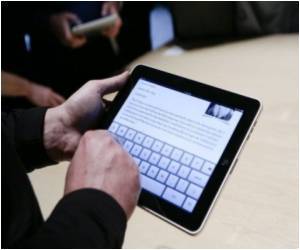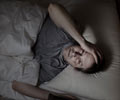American researchers have said that using a laptop or an iPad just before going to sleep can make you sleepless, increasing the risk of becoming an insomniac.

Human brains are biologically wired to be awake when the sun is out because bright light after dark causes the brain to stop secreting the hormone called melatonin that makes us sleepy.
Human eyes are particularly sensitive to blue light, which is common during the day but not in the evening.
This confusion can cause the brain to think it is daytime, when actually it isn't - causing lack of sleep.
"Potentially, yes, if you're using [the iPad or a laptop] close to bedtime ... that light can be sufficiently stimulating to the brain to make it more awake and delay your ability to sleep," The Telegraph quoted Phyllis Zee, a neuroscience professor at Northwestern University and director of the school's Centre for Sleep and Circadian Biology, as telling CNN.
"And I think more importantly, it could also be sufficient to affect your circadian rhythm. This is the clock in your brain that determines when you sleep and when you wake up."
Advertisement
Experts advise that if a laptop has to be used, it should be used at least 2 hours before going to bed.
Advertisement
SAV














